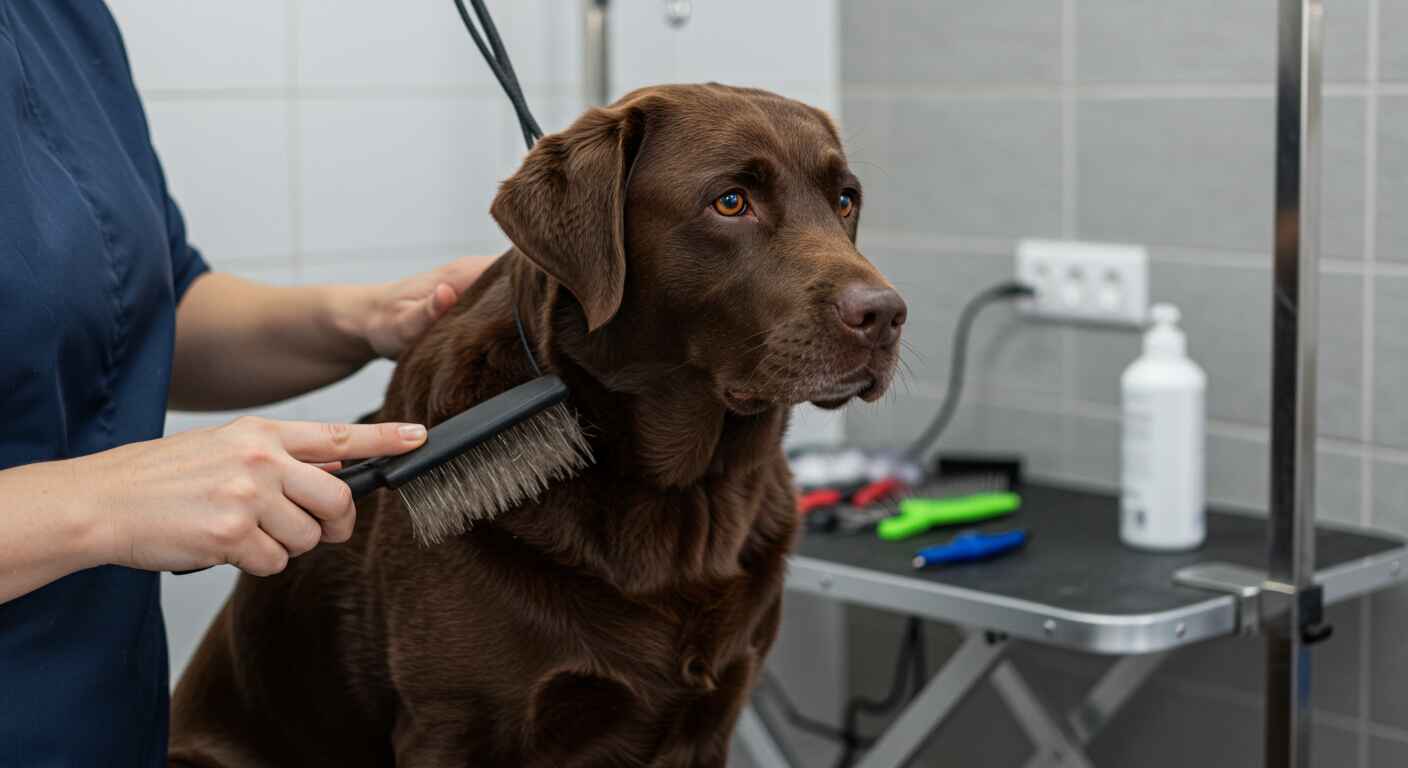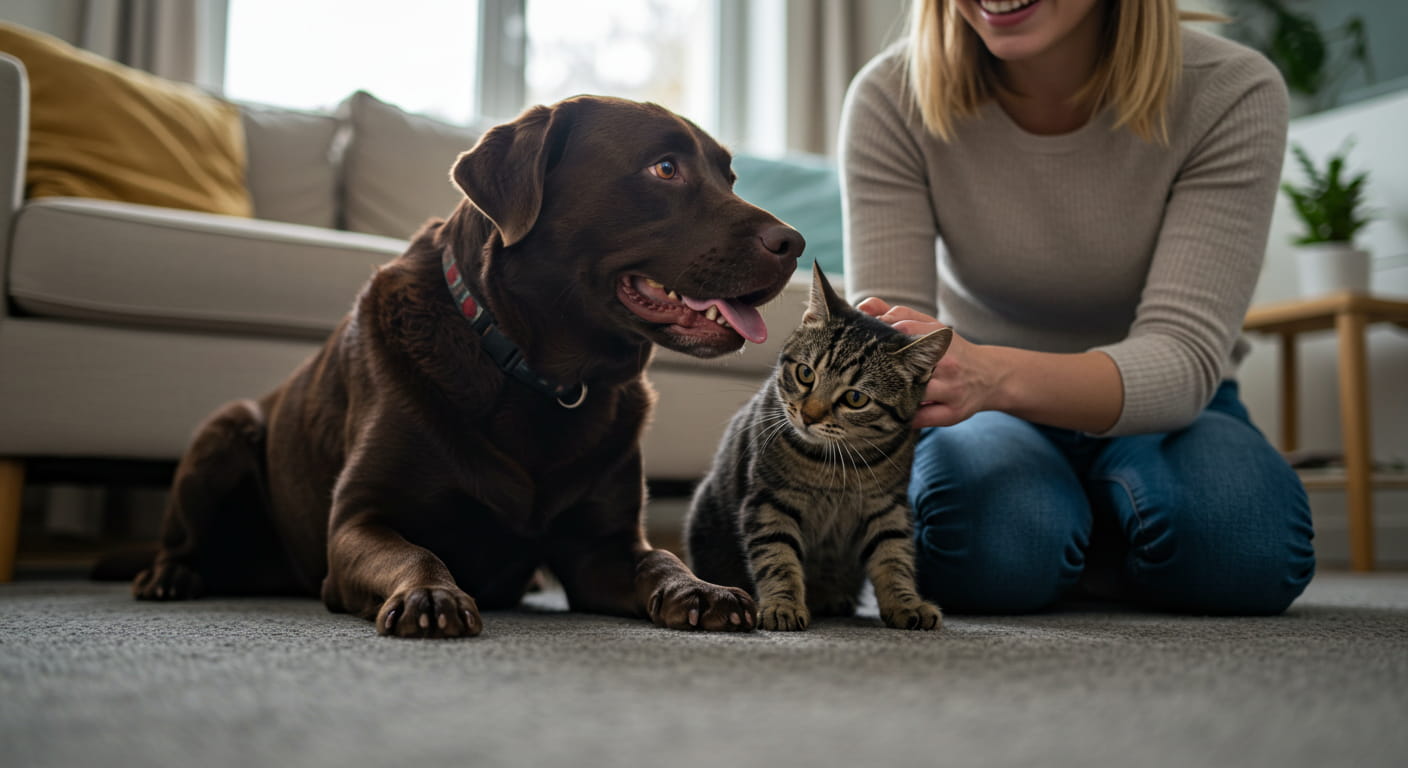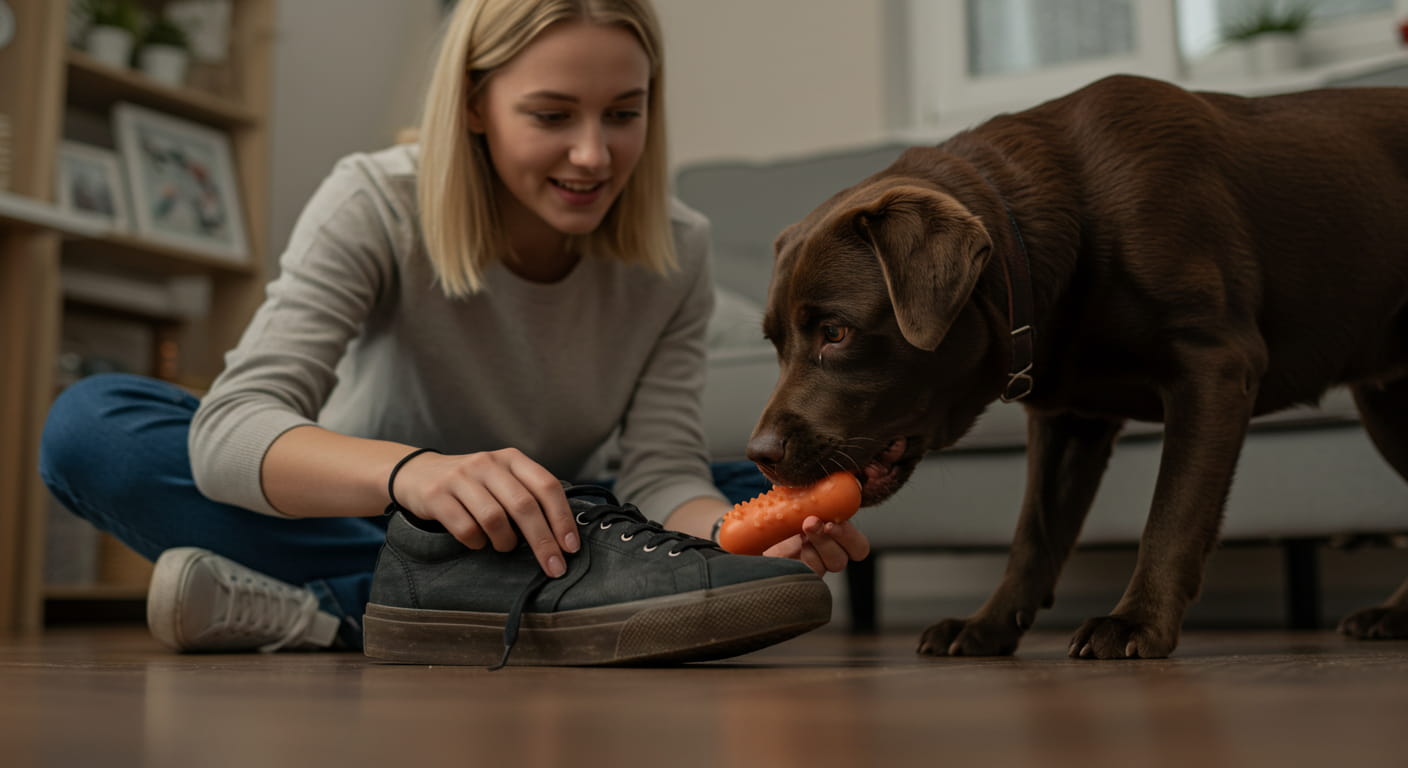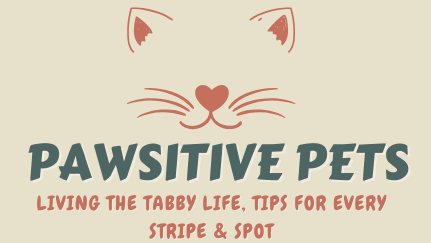10 pet care tips every beginner should know can turn confusion into confidence for any new pet parent. If you’ve ever looked at a leash or litter box wondering, “Am I doing this right?” you’re not alone.
My love for animals started with Mimi, my grandmother’s fluffy white cat who ruled our home. Sundays meant dogs on laps, cats in windows, and our parrot Charlie stealing snacks. It wasn’t chaos, it was love. We didn’t just grow up with pets, we grew up because of them.
This guide isn’t expert jargon, it’s real advice from one pet lover to another. Whether you’ve adopted a puppy, a kitten, or a squeaky guinea pig duo, these 10 pet care tips every beginner should know will help you build a bond that lasts a lifetime.
Table of Contents
Know Your Pet Before You Bring Them Home
Understand Different Pet Personalities
Before diving into the full list of 10 pet care tips every beginner should know, let’s start with the one that many skip: knowing what kind of pet fits your life best. The right match leads to a stronger bond, less stress, and a happier home for both of you.
Dogs are loyal and full of energy, perfect for active households. Cats are more independent but still need affection and playtime. Guinea pigs are social and talkative in their own little way, while birds can be both brilliant and demanding. Even fish, while quiet and calming, require more care than beginners often expect.
Ask yourself:
- Do you want a pet that cuddles, or one that observes?
- Can you provide time for walking, training, or free-roam space?
- Are you more comfortable with furry paws or fins and feathers?
Choosing the right companion is the very first of our 10 pet care tips every beginner should know, and perhaps the most important. It’s not just about what you want, it’s about what your lifestyle can support.
Space and Budget Planning Tips
Every pet needs space, not just physical, but emotional too. Planning ahead for your pet’s comfort and your own convenience is a key part of successful ownership.
Let’s take a quick look:
| Pet Type | Space Needed | Monthly Budget | Essentials |
|---|---|---|---|
| Dog (medium) | Yard or walk access | $100-$200 | Food, vet visits, grooming, toys |
| Cat | Indoor spaces | $50-$120 | Litter, scratching post, wet/dry food |
| Guinea Pig (pair) | Cage + play corner | $30-$60 | Bedding, pellets, veggies |
| Parrot | Cage + safe room | $40-$80 | Perches, seed mix, puzzle toys |
| Fish | Aquarium setup | $20-$50 | Filters, water conditioner, feed |
Of all the 10 pet care tips every beginner should know, planning space and costs ahead of time is what helps new pet owners avoid early overwhelm and regret.
Feeding Right for Every Pet
Basic Nutrition for Dogs, Cats, and Small Pets

One of the most important of the 10 pet care tips every beginner should know is how to feed your pet properly, because nutrition impacts everything from energy levels to long-term health.
Dogs need a protein-rich diet with balanced carbs and fats. Puppies especially require more calories, calcium, and small, frequent meals. Adult dogs do best with scheduled feedings, clean water, and breed-appropriate kibble. Avoid human foods like grapes, onions, or chocolate, all toxic.
Cats are strict carnivores. They need taurine, an amino acid only found in meat. Dry food is convenient but a mix of wet and dry helps with hydration and urinary health. Also, make sure your cat has access to clean water at all times.
Small pets like guinea pigs, rabbits, or hamsters thrive on high-fiber foods like hay, leafy greens, and species-specific pellets. Treats should be occasional and safe, not sugary snacks or seed-only mixes. For birds, aim for a balanced mix of pellets, fresh produce, and clean water.
Getting pet nutrition right isn’t complicated, but it does require consistency and attention. As a beginner, start with food that’s vet-recommended, portioned correctly, and suited for your specific animal’s breed, age, and size.
Learn more about 10 Signs Your Pet Might Be Sick
Homemade vs Store-Bought Pet Food
Many new pet owners debate whether to cook at home or stick with store-bought options. Let’s break it down.
Homemade pet food can give you control over ingredients, reduce preservatives, and help manage allergies. But it comes with risk, it’s easy to miss vital nutrients if recipes aren’t properly balanced.
Store-bought food, especially high-quality brands, is formulated to meet established nutritional standards like AAFCO. It’s a safe, easy choice for beginners. Dry kibble is affordable and long-lasting, while canned food offers extra protein and moisture, especially good for cats and seniors.
Here’s a helpful breakdown:
| Type | Pros | Cons |
|---|---|---|
| Homemade Pet Food | Control, freshness | Requires time, expert guidance needed |
| Store-Bought (Dry) | Affordable, easy to store | Lower moisture, may include fillers |
| Store-Bought (Wet) | Richer in protein and hydration | Short shelf life, pricier per serving |
| Raw Diets | High in natural protein | Risk of bacteria, must be carefully managed |
If you want to follow the 10 pet care tips every beginner should know, feeding right from day one ensures your pet stays energized, balanced, and content.
Creating a Safe and Happy Environment
Pet-Proofing Your Home Room by Room
A secure living space is one of the 10 pet care tips every beginner should know that truly makes life easier. Pets explore with their mouths and paws, so protecting them from everyday hazards is essential.
Here’s how to break it down by room:
- Living Room: Secure wires, hide remote batteries, and remove toxic houseplants like lilies or philodendrons.
- Kitchen: Keep human food locked away, especially chocolate, xylitol (in sugar-free gum), onions, and alcohol, all of which are dangerous.
- Bathroom: Shut cabinets, secure razors and medications, and keep toilet lids closed to prevent drinking.
- Bedroom: Tuck away jewelry, earbuds, and other bite-sized items.
If you’re serious about following the 10 pet care tips every beginner should know, pet-proofing isn’t optional it’s the first step toward safety and peace of mind.
Discover helpful advice in 8 Essential Steps to Prepare Your Home for a New Pet
Toys, Beds, and Comfort Corners for Beginners
Comfort is key to making a pet feel secure. Dogs usually crave soft, quiet corners with a bed and blanket. Cats seek elevation and enclosed spaces. Small pets like guinea pigs need cozy, clean bedding and places to hide.
Here’s a quick starter list:
| Pet Type | Toy Ideas | Comfort Zone Must-Have |
|---|---|---|
| Dog | Chew toys, ropes, puzzle feeders | Soft bed, crate space |
| Cat | Wand toys, cat trees, tunnels | Elevated perch, window seat |
| Guinea Pig | Chew sticks, cardboard tunnels | Safe bedding corner |
| Bird | Ladders, bells, paper shredders | Covered perch area |
Rotating toys weekly prevents boredom and keeps your pet mentally engaged. This often-overlooked part of the 10 pet care tips every beginner should know can reduce anxiety and destructive behaviors dramatically.
Out of the 10 pet care tips every beginner should know, making your space safe is the tip that prevents the most accidents, and regrets.
Building Daily Care Routines
Feeding, Walking, Grooming-The Essentials
Out of all the 10 pet care tips every beginner should know, none matter more on a day-to-day basis than this: build a routine. Why? Because structure creates security, for both pets and their people.
Start simple:
- Feeding: Serve meals at the same time every day. Stick to recommended portions, and avoid giving extra treats “just because.”
- Exercise: Dogs need at least two walks a day. Cats enjoy active play in short bursts, a wand toy or laser pointer goes a long way. Small pets need safe, supervised time outside their cages.
- Grooming: Brush regularly (daily for long-haired pets), trim nails every 2-4 weeks, and clean ears gently when needed. For many pets, less bathing is more, once a month or less unless advised by a vet.
Daily care is one of the 10 pet care tips every beginner should know that creates trust and stability, especially during those crucial early weeks.
Daily care prevents major problems like obesity, matted fur, anxiety, and even dental issues. These are the basics of responsible pet parenting, and they anchor the 10 pet care tips every beginner should know in practical action.
Discover great ideas like How Much Should You Feed Your Cat Daily?
Schedule Tips That Make You a Pro Fast
Being consistent doesn’t mean being perfect, it just means being present. Most new pet owners don’t realize how quickly pets adapt to daily rhythms. When they know what to expect, they feel calm and safe.
Here’s how to simplify:
- Block out 15-30 minutes morning and night for feeding, bonding, and potty breaks.
- Use your phone’s calendar to set reminders for flea treatments, vet visits, and grooming.
- Print a feeding chart and stick it to your fridge or pantry door.
A little planning goes a long way. In fact, time management is often what separates stressed pet parents from confident ones. If you’re aiming to follow all 10 pet care tips every beginner should know, this is where it clicks: your life and theirs sync into a shared rhythm.
Don’t miss our 8 Essential Steps to Prepare Your Home for a New Pet
Basic Health & Hygiene Practices
How to Spot Health Issues Early

As you follow the 10 pet care tips every beginner should know, one of the most valuable habits you can build is watching for subtle signs of illness. Pets can’t speak, so it’s up to you to recognize when something’s off.
Staying alert to symptoms is one of the 10 pet care tips every beginner should know that could literally save your pet’s life.
Here are key signs to watch:
- Changes in appetite or thirst (eating less, drinking more)
- Lethargy or hiding behavior
- Vomiting or diarrhea
- Coughing, sneezing, or labored breathing
- Bad breath or dental buildup
- Scratching or red skin patches
Schedule your first vet visit within a week of bringing your pet home. Then stick to annual exams, vaccines, and preventative care. For beginners, it’s smart to keep a pet health journal, jot down symptoms, dates, and diet changes.
Learn more about Adopting vs Buying a Pet.
When and How to Groom Your Pet
Grooming isn’t just about looking good, it’s a major part of your pet’s health and comfort. Depending on the breed and species, grooming needs will vary, but a general routine should include:
| Task | Frequency | Tools You’ll Need |
|---|---|---|
| Brushing | 2–5x per week | Slicker brush, shedding tool |
| Bathing | Every 4-8 weeks | Pet-safe shampoo, towel |
| Nail Trimming | Every 2-4 weeks | Pet nail clippers, styptic powder |
| Ear Cleaning | Monthly/as needed | Vet-recommended ear solution |
| Dental Care | 3-5x per week | Pet toothbrush & enzymatic paste |
Pro tip: start slow. Let your pet sniff the tools. Praise, treat, repeat. Over time, grooming will become a bonding activity instead of a struggle.
Proper hygiene is often the most overlooked element in pet care, especially for beginners. But if you’re applying all 10 pet care tips every beginner should know, it can’t be skipped. It’s your pet’s first defense against discomfort, infection, and even chronic illness.
Of all the 10 pet care tips every beginner should know, staying proactive with hygiene is one of the easiest ways to prevent long-term issues and keep your pet thriving.
Training Without the Stress
Easy Commands for Dogs, Cats, and Small Pets
One of the 10 pet care tips every beginner should know that saves hours of frustration later? Start training early, and keep it simple.
Training doesn’t have to mean military obedience. For new pet parents, it’s about building communication, trust, and consistency. Start with the basics:
| Pet Type | Beginner Commands | Tools to Help |
|---|---|---|
| Dog | Sit, stay, come, leave it | Treats, clicker, leash |
| Cat | Come, off, name recognition | Toys, treats, target stick |
| Guinea Pig | Respond to name, come to hand | Food rewards, soft voice |
| Bird | Step up, stay, whistle back | Treats, finger perch, cues |
Dogs respond best to short, consistent cues paired with positive reinforcement (never punishment). Cats can be trained too, using treats and clicker tools, especially if introduced as kittens. Even small pets like guinea pigs or birds can learn basic commands with repetition and reward.
Training isn’t about perfection. It’s about communication. And as one of the 10 pet care tips every beginner should know, it’s key to building a stress-free home where pets feel understood.
For a step-by-step intro to positive reinforcement, check out our beginner’s guide to clicker training.
Positive Reinforcement 101 for Newbies
Positive reinforcement means rewarding your pet for the behavior you want to see, and it works across all species. Whether it’s a dog sitting on command or a guinea pig coming to your hand, timing and tone matter.
Here’s a simple process:
- Say the command clearly (just once).
- Wait for even a hint of the correct behavior.
- Instantly reward with a treat or praise.
- Repeat often in short, 5-10 minute sessions.
Avoid yelling, scolding, or punishing, these only create fear. Instead, redirect and reward good choices.
As you move through the 10 pet care tips every beginner should know, training becomes more than obedience. It becomes the foundation for trust, structure, and joyful companionship.
When practiced early, these 10 pet care tips every beginner should know make training feel natural, not stressful.
Bonding and Socializing Your Pet
How to Build Trust With a New Pet

Bonding is one of the 10 pet care tips every beginner should know that affects everything else, training, routines, even your pet’s long-term behavior. Whether it’s a dog, cat, or small pet, they all need time to feel safe.
As one of the most heartfelt 10 pet care tips every beginner should know, bonding transforms pets from animals into family.
Here’s how to make that connection:
- Go slow: Let them come to you. Never force contact or cuddling.
- Be consistent: Feed, walk, and play at the same times each day.
- Watch body language: Ears back, tail tucked, or hiding usually mean “I need space.”
- Use treats: Reward every brave step, like coming closer or making eye contact.
Talk softly, move calmly, and be patient. Some pets warm up in a day, others need weeks. The bond you form now becomes the foundation for a happy, trusting relationship later.
Learn more about how to build pet trust from day one.
Safe Play and Interaction with Children
If you have kids at home, socializing your pet safely is just as important. As part of the 10 pet care tips every beginner should know, this one protects both your furry friend and your family.
Teach children to:
- Respect space, no grabbing tails, ears, or fur.
- Stay quiet and still when meeting a new animal.
- Use gentle hands and calm voices.
- Never approach a pet while it’s eating or sleeping.
Always supervise early interactions. Dogs might nip, cats may scratch, and even small pets can feel threatened. Socializing doesn’t mean constant interaction, it means teaching respect, timing, and comfort levels.
A well-socialized pet is a joy to be around, and they’re more confident, less anxious, and easier to train in the long run.
Handling Behavioral Problems Gracefully
Solutions for Chewing, Scratching, or Aggression
Among the 10 pet care tips every beginner should know, dealing with behavior issues calmly and confidently is one that often gets overlooked. But it’s completely normal for pets to test boundaries, especially in new environments.
Let’s break down some common challenges and beginner solutions:
| Behavior | Common Causes | What To Do Instead |
|---|---|---|
| Chewing (dogs) | Teething, boredom | Provide chew toys, increase play time |
| Scratching (cats) | Territory, claw health | Use scratching posts, trim claws regularly |
| Biting/Nipping | Fear, excitement, overhandling | Use positive redirection, reduce triggers |
| Hiding (small pets) | Stress, new environment | Give time, create safe hideouts |
PART 9: Seasonal and Travel Pet Care Tips
How to Keep Pets Comfortable Year-Round

Adjusting your care based on the season is one of the 10 pet care tips every beginner should know that many people forget. But pets feel the effects of weather changes just like we do, sometimes more.
Here’s how to prepare for each season:
- Summer: Never leave pets in hot cars. Provide cool water, shaded areas, and avoid walking dogs on hot pavement.
- Winter: Keep pets indoors, use pet-safe deicers, and dry them off after walks. Short-haired dogs may need coats.
- Spring/Fall: Watch for allergens, flea/tick activity, and fluctuating temps. Clean bedding more often.
Also, keep up with vaccines and flea/tick prevention year-round, not just in warmer months.
Learn more about how to keep pets safe in extreme weather.
Beginner Travel Packing List for Pets
Traveling with pets can be fun and easy, with the right prep. Another of the 10 pet care tips every beginner should know is that stress-free travel comes down to planning ahead.
Use this quick checklist when traveling with pets:
| Travel Item | Why It Matters |
|---|---|
| Portable water & food | Stay hydrated and fed on the go |
| Crate or carrier | Keeps pets secure and reduces anxiety |
| Vaccine records | Required for flights and some hotels |
| Favorite toy or blanket | Brings a sense of home |
| Waste bags or litter | Clean-up essentials |
Frequently Asked Questions
Still have questions after reading the 10 pet care tips every beginner should know? You’re not alone. Here are answers to common questions new pet owners ask, all based on the same foundation of trust, care, and consistency covered in the 10 pet care tips every beginner should know.
How do you take care of a pet in 10 lines?
Choose the right pet for your lifestyle.
Prepare a safe and pet-proof home.
Feed a balanced diet appropriate for their species.
Provide fresh water at all times.
Establish a consistent daily care routine.
Schedule regular vet check-ups and vaccinations.
Socialize and bond through play and affection.
Train using positive reinforcement.
Groom regularly and maintain hygiene.
Give them love, time, and patience every day.
How do beginners take care of their dogs?
Start with a daily routine: feed at set times, walk at least twice a day, and spend time playing and bonding. Schedule vet visits for vaccinations and check-ups, use treats for basic training, and avoid punishment. A secure crate and chew toys help with house training. Keep water fresh and available at all times.
What is the number one easiest pet to take care of?
Many beginners find betta fish, guinea pigs, or cats the easiest to care for. These pets require less space and are generally lower maintenance. That said, “easy” depends on your lifestyle, if you’re consistent and informed, even more demanding pets can fit in smoothly.
What is the most overlooked pet healthcare issue?
Dental health is one of the most ignored areas. Bad breath, plaque buildup, and gum disease can lead to serious health problems. Regular brushing, dental treats, and vet cleanings are essential, even for small pets.
Wrapping Up: Your Journey Starts with These 10 Pet Care Tips Every Beginner Should Know
These 10 pet care tips every beginner should know are more than steps, they’re the start of a rewarding relationship between you and your pet. Whether you’re welcoming a playful puppy, a curious kitten, or a gentle guinea pig, following the right path from day one makes all the difference.
If you’ve read this far, you’re already on your way to being a thoughtful, informed pet parent. The 10 pet care tips every beginner should know cover everything from setting routines to building emotional bonds, and when practiced with consistency, they lead to a happier, healthier home for both of you.
Learning how to feed, train, and care for your pet might feel overwhelming at first. But these 10 pet care tips every beginner should know break it down into manageable, loving steps. Bookmark them. Share them. Refer back to them as your journey unfolds.
Looking for inspiration? Check out out how to keep your pet cool in summer
Thanks for being here. Your pet isn’t just lucky, they’re loved. And now, you’re ready to give them everything they deserve.


